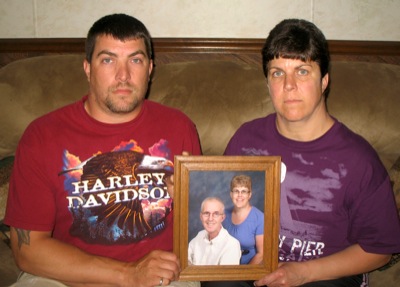Wednesday, May 30th, 2012
Nearly fourth not paying taxes
St. Marys' residents
By William Kincaid
ST. MARYS - As many as 2,000 people - nearly a fourth of the city's population - may not be paying income taxes totaling as much as $50,000 annually, according to city administrators.
People who live in St. Marys and work outside of the city may not even know they're required to file, director of public service and safety Jason Little said. Some may assume their employer is taking care of it, and the city has no ordinance saying residents must file.
But that may change.
City council members on Tuesday held first reading of an ordinance that would require all residents to file city income taxes, currently set at 1.5 percent. A second reading is planned for the 7 p.m. June 11 meeting at the municipal building.
Councilman James Harris, who presented himself as a small business stalwart wary of tax collectors, expressed skepticism at the proposed piece of legislation, questioning how much the additional tax filings would cost the city to process.
If the tax department has to add another employee, the mandatory filing policy is not worth it, he said.
Tax administrator Joy Bond, who pointed out her department no longer processes the village of Fort Loramie's taxes, said she would not need another employee.
Bond said mandatory filing ensures fairness, as the tax department does not know when a resident begins employment outside the city.
"So I'd like to see mandatory filings in St. Marys," she told council members.
Residents who work outside St. Marys and pay 1.5 percent or more in income taxes to another municipality owe the city nothing, Little said. If they pay less than 1.5 percent in income taxes to another municipality, they owe St. Marys enough to reach the 1.5 percent level.
Councilman Dennis Vossler asked if most businesses like Honda withhold income taxes contributions from their employee's payment.
Some do and some don't, Bond replied.
Vossler said he doesn't like the idea of requiring residents to submit too much personal information to the city tax department, some of which should be kept private.
Council members on Tuesday night also held first reading of an ordinance related to the treatment of "loss carry forwards" when a business files taxes.
If enacted, a portion of the net operating loss sustained in any taxable year by a business may be applied against the portion of the profit of succeeding tax years to the city for no longer than five taxable years immediately following the year in which the loss occurred. Also, the net operating loss sustained by a business or profession would not be deductible from employee W2 earnings, but would be allowed to be carried forward.
According to Bond, the legislation would eliminate the ability of ventures that will never show a profit to reduce W2 income.
"Profit seeking ventures still have the advantage to use the five-year loss carry forward to use against future profits," an administrative report states. "Rental properties almost always run at a loss - the rental investment pays off when the property is sold. This is a capital gain and is not taxable by the city."
The only negative effect on the taxpayer, according to the administrative report, is not being able to use losses of ventures that will never show a taxable profit.
Harris said the policy could penalize residents for taking business risks and deny them cash-flow, the biggest killer of small businesses.

